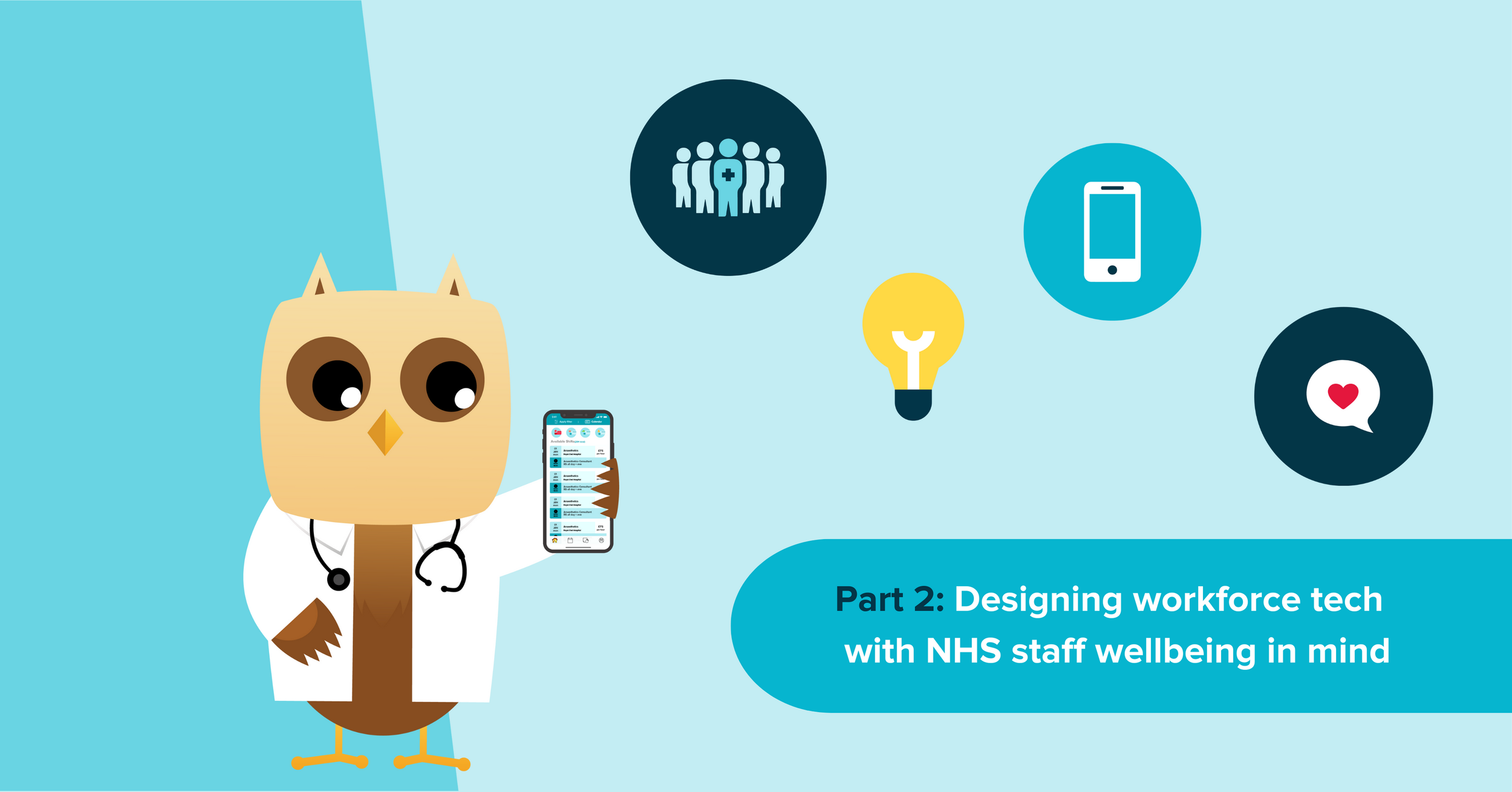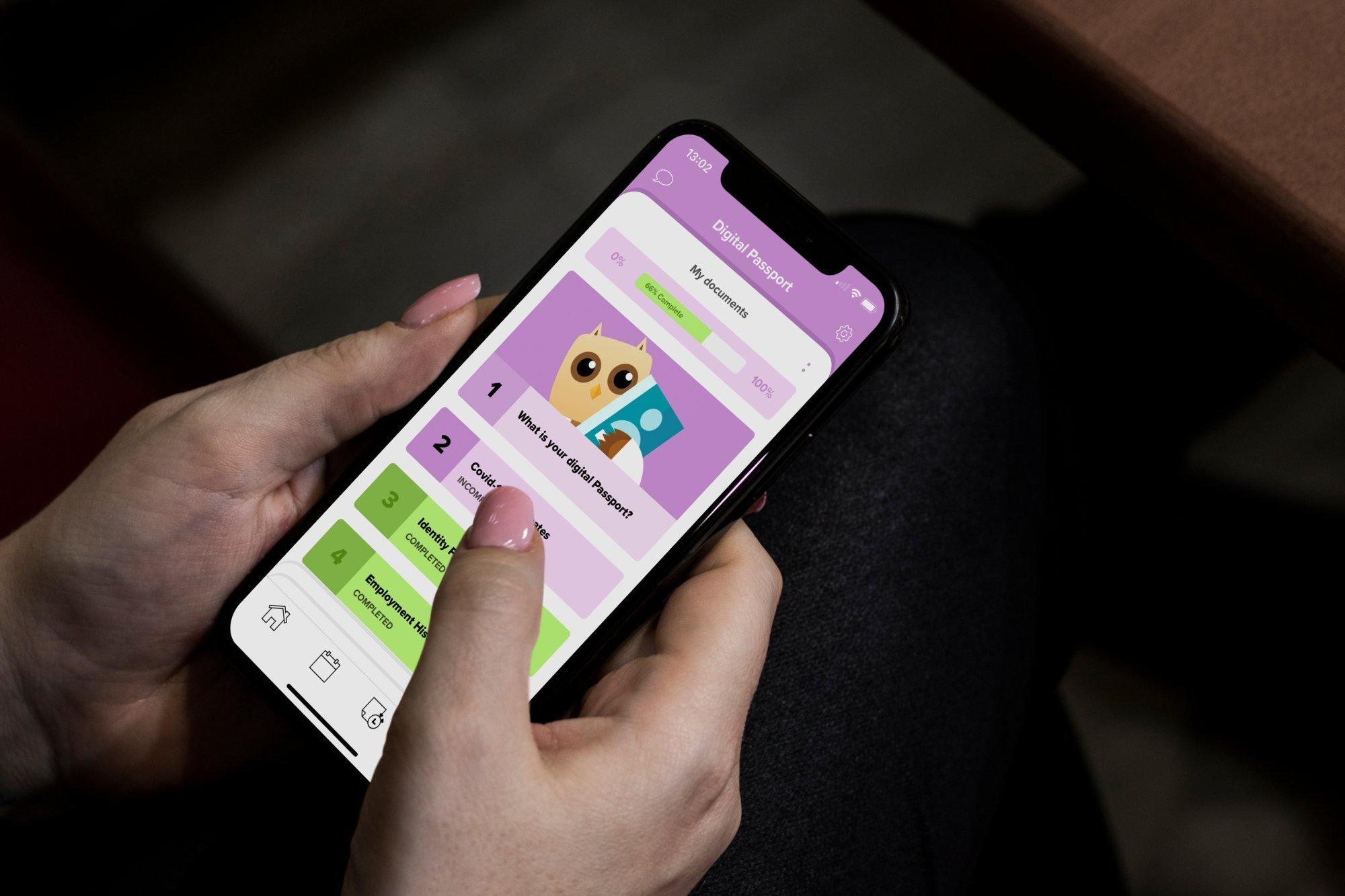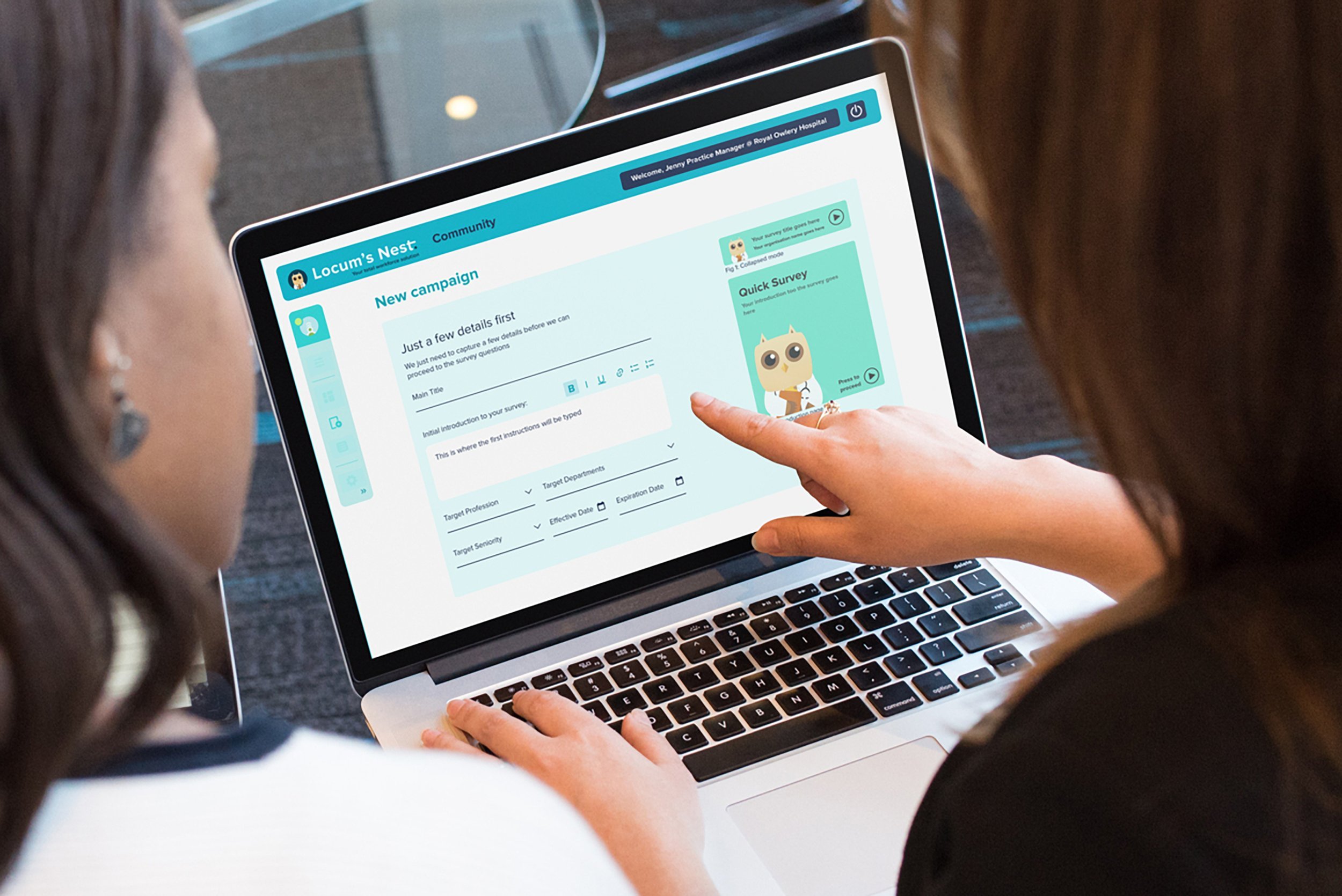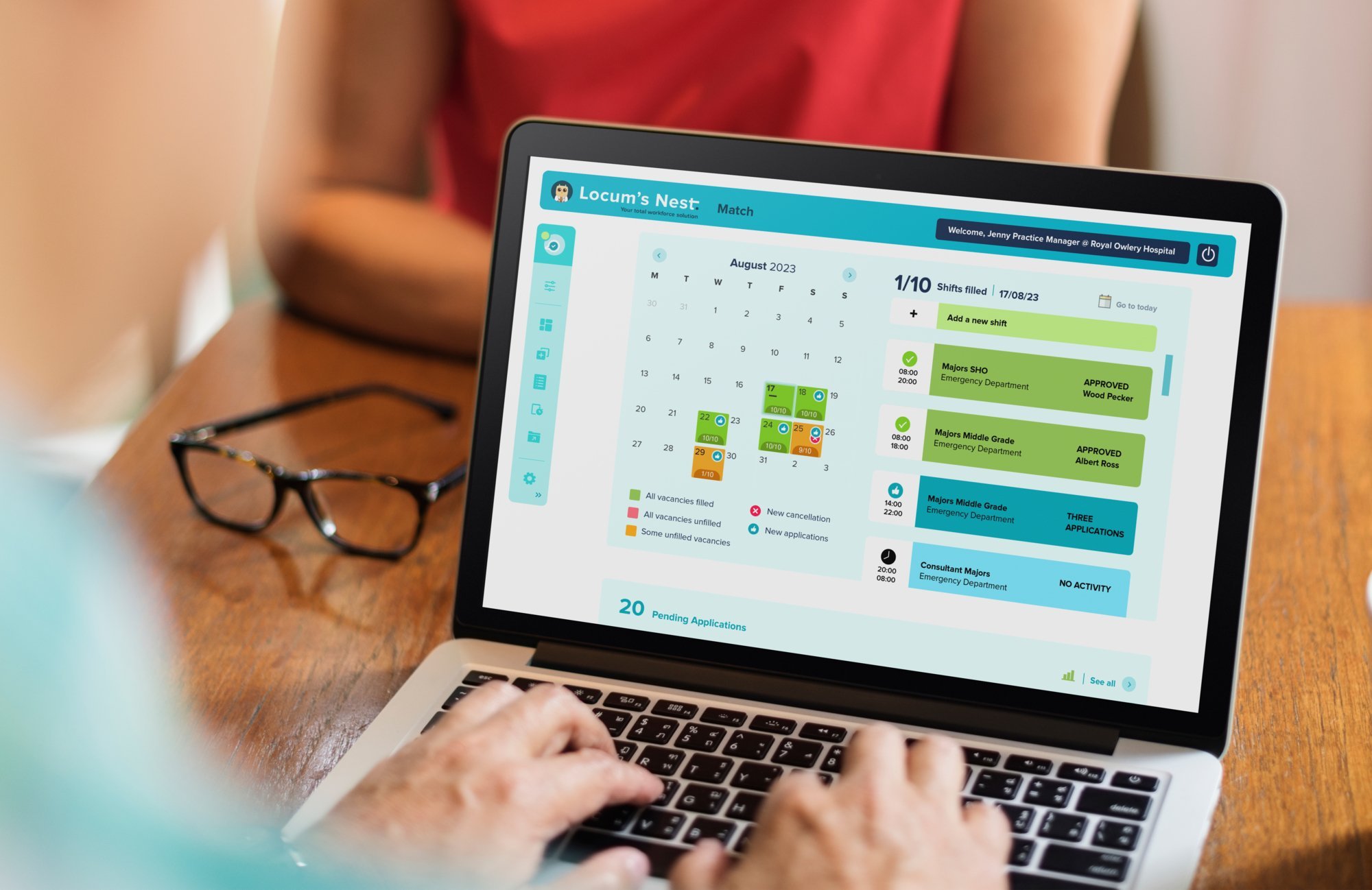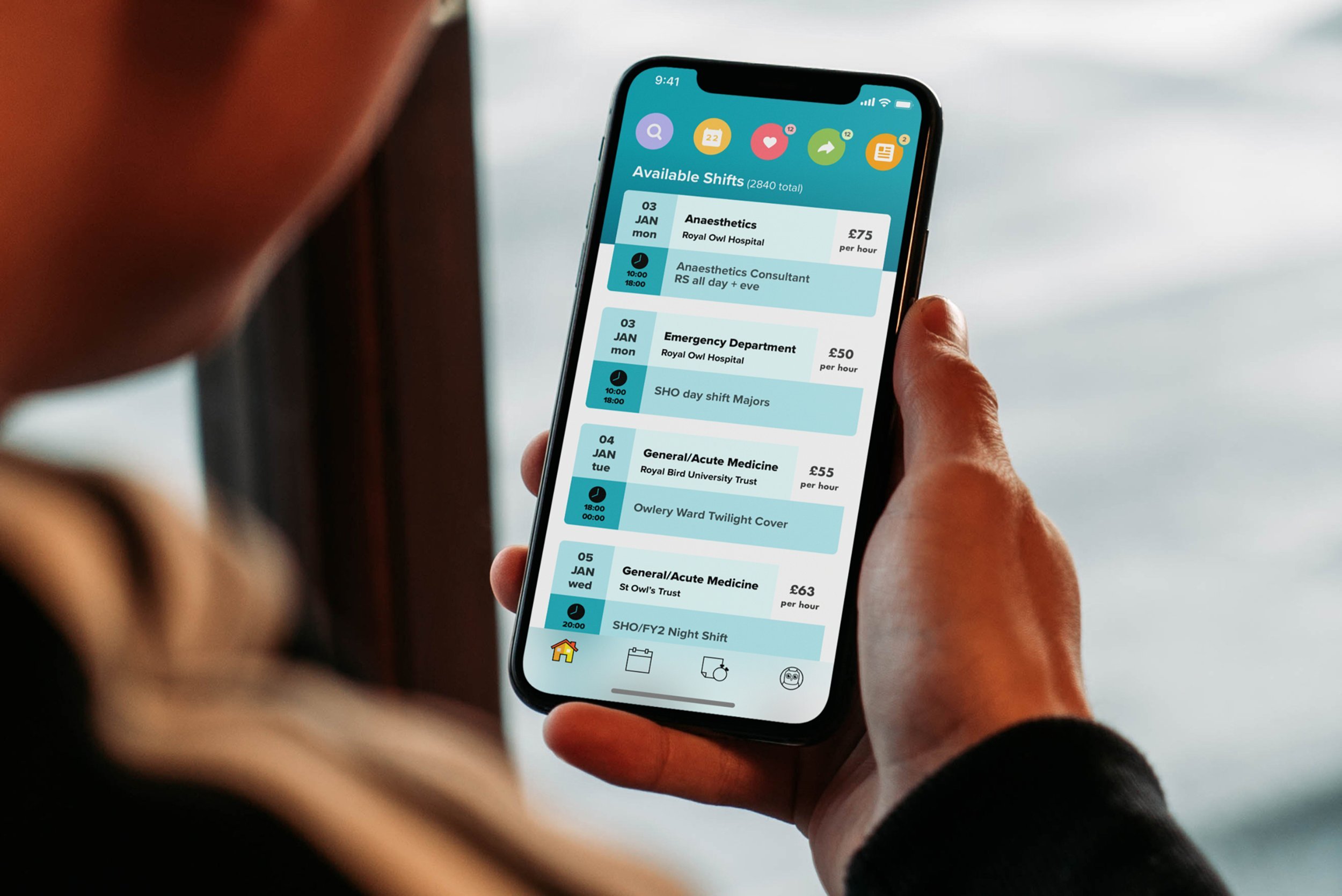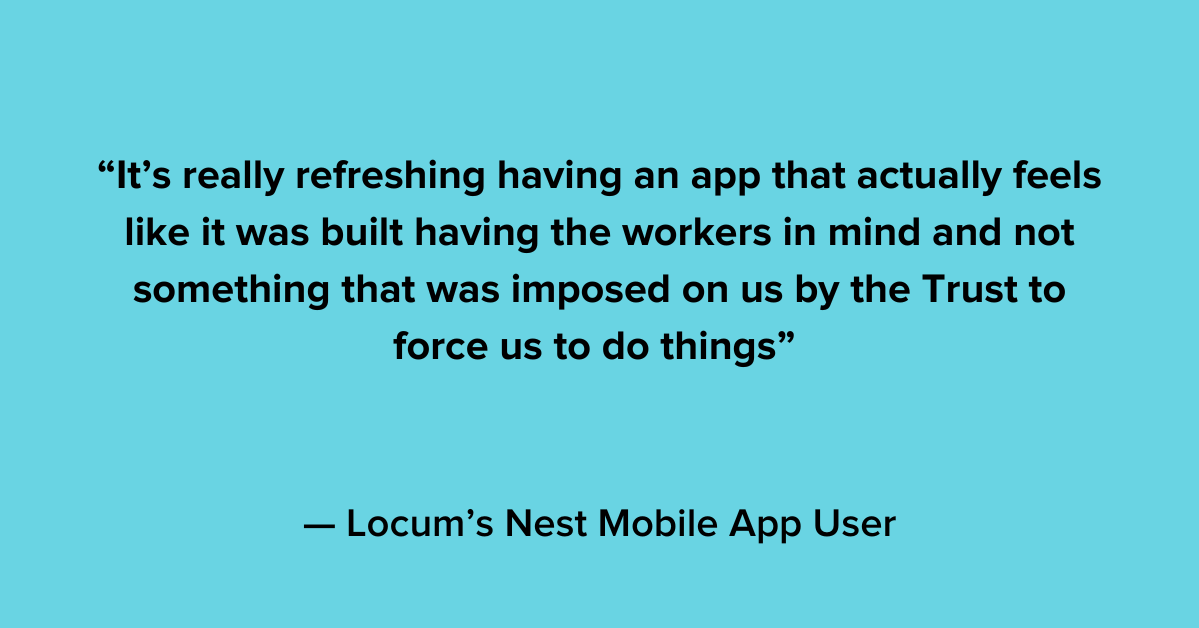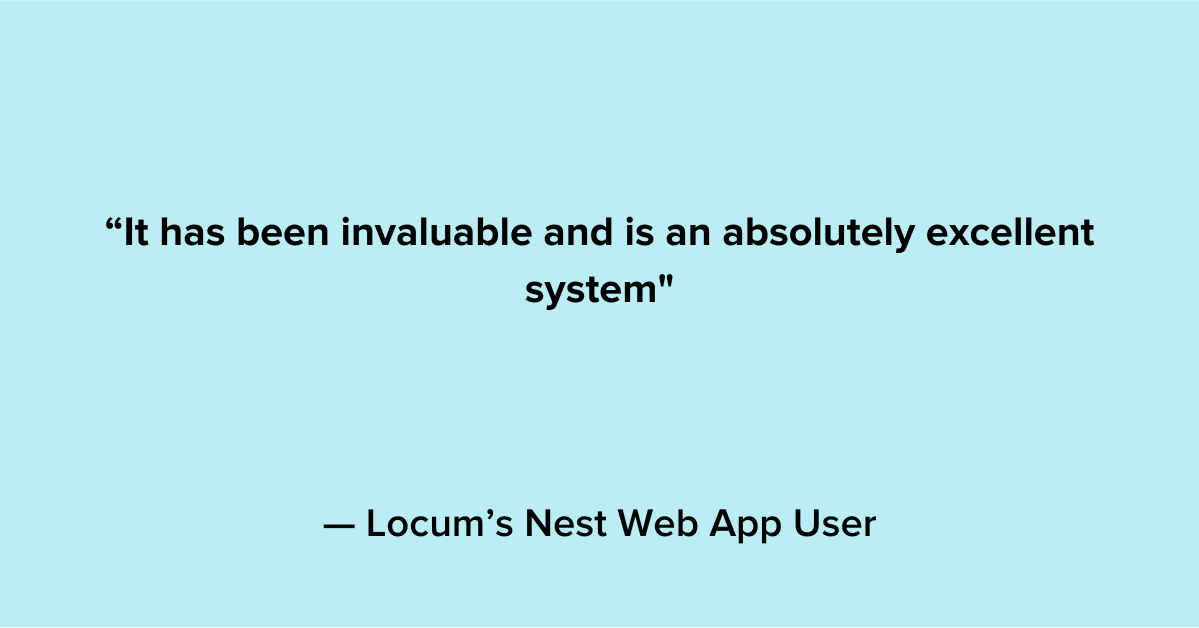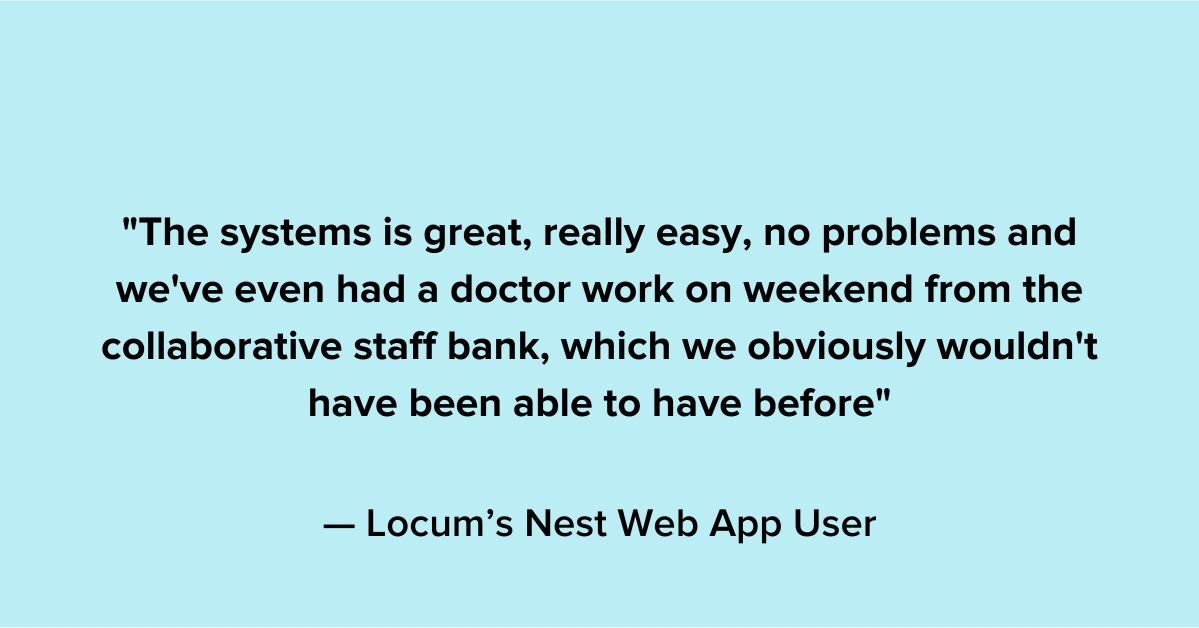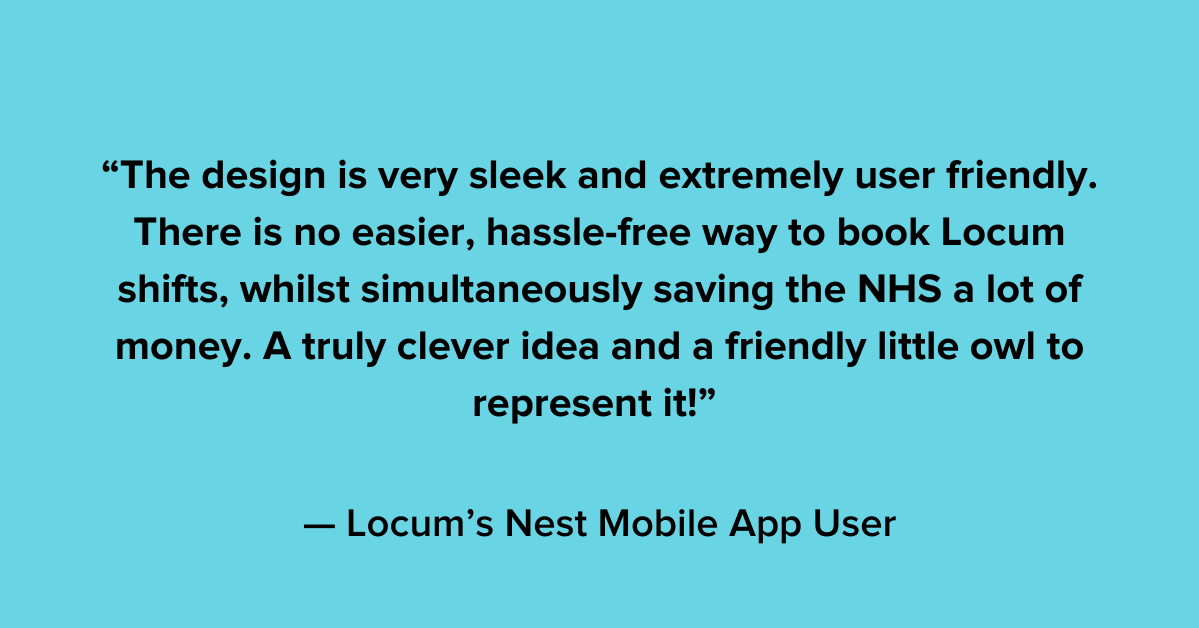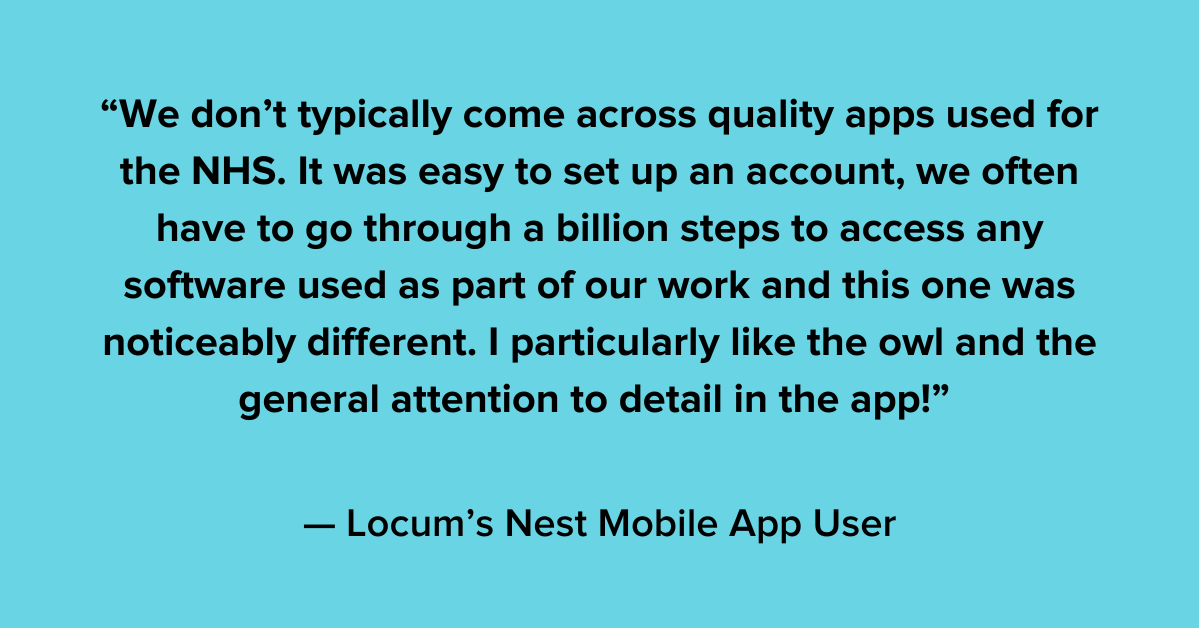Designing Workforce Technology with NHS Staff Wellbeing in Mind (Part 2)
In the fast-paced world of healthcare, technology plays a critical role in ensuring the efficient and effective delivery of patient care. From electronic health records to telemedicine, digital solutions are transforming the way our healthcare system works and how we interact with it. The successful integration of these technologies into healthcare systems has the potential to improve patient outcomes, reduce costs, and increase efficiency. Furthermore, this boom in healthcare technology has brought with it a renewed focus on designing user experience (UX) for healthcare, grounded in user-centric design. Well-designed UX in healthcare technology can not only improve user adoption but also contribute better service delivery and experience and ultimately better patient outcomes.
As a result, the integration of user-centric design principles in healthcare technology is becoming increasingly important, as it focuses on the needs of users and their overall experience while using the product. It is crucial to consider the user's mental health, which means the design process involves more than just creating solutions with fewer distractions. It entails developing user experiences that honour the time and emotional well-being of individuals.
Simple and fit for purpose
Designing for healthcare requires a unique approach that takes into consideration the specific needs of healthcare providers. This requires a deep understanding of their complex workflows and operational needs. And that’s why when designing our products, we consider the different ways in which NHS workers interact with technology. We strive to make our web and mobile apps user-friendly and intuitive, allowing people teams and healthcare professionals to easily navigate and use them.
Doctors, nurses, AHPs and NHS workers are more than their role. They’re people; people who engage with, adopt and consume technology in their personal lives and therefore should be treated as much - not strictly as those who deliver healthcare. Therefore, it is essential to provide products that meet their unique needs. User Experience (UX) design plays a crucial role in ensuring that digital healthcare applications are not only functional but also easy to use and navigate. A well-designed UX can greatly reduce the amount of time and effort required to complete tasks, improving efficiency and reducing stress for healthcare workers.
User-centric design
We understand that healthcare professionals have demanding and often stressful jobs, which is why our products are designed to provide support and ease their workload. We take the time to listen to feedback from healthcare professionals and incorporate their ideas into our products. By doing so, we create products that are tailored to their unique needs and preferences.The same way social media apps have been designed to be addictive, the app experience could be designed to promote wellbeing and decrease stressors.
When healthcare professionals are stressed and overworked, their mental health can suffer, and the quality of patient care may be compromised. This is why it is so important to design digital healthcare applications with user mental health in mind. For instance, a poorly designed application that is difficult to navigate and lacks clear instructions can cause frustration and anxiety, leading to decreased productivity and job satisfaction. On the other hand, a well-designed digital healthcare application that is intuitive and easy to use can have the opposite effect. By providing an enjoyable and seamless user experience, NHS workers are able to focus on patient care and other essential tasks, reducing their stress levels and improving their mental health.
Dr Owlbert, our beloved mascot and brand representative, represents our unique approach. He might be a cartoon character, but his tone reflects the support provided by our team at Locum's Nest, guiding users throughout their journey from onboarding to scheduling their initial shift. Not to mention, he brings a sense of humour, recognising that healthcare professionals are human and the task of managing their work shouldn't be tedious and boring.
Our emphasis on simplicity and practicality enables us to enhance the wellbeing of NHS workers by saving them valuable time, eliminating cumbersome paperwork and tasks, allowing them to concentrate on their field of expertise. This approach removes unnecessary burdens and helps promote a healthier mindset.
Future Proofing through feedback
What sets Locum's Nest apart is not only our team of exceptional engineers, customer solution teams, and design experts, but also the unique experiences of our people. Many colleagues within the company are former NHS doctors, rota coordinators, and other healthcare workers, all of whom deeply understand our users because they were once in their shoes.
This shared experience has fostered a welcoming culture of feedback from both team members and app users. Our application is designed with user-friendly algorithms, ranging from simple FAQ articles to instant in-app support from our customer service team. It's also easy to submit anonymous feedback at any time, and we carefully consider and act upon every suggestion we receive. We believe in constantly improving and updating our suite of agile products to ensure that Locum's Nest remains the top workforce tech provider supporting the NHS workforce.
Final thoughts
At the core of any successful healthcare solution is the ability to engage and effectively serve its users. To achieve this, designing technology with the needs and preferences of users in mind is crucial. By placing users at the centre of the design process, healthcare solutions can be tailored to meet the unique needs of NHS workers, ultimately resulting in increased user satisfaction and engagement. This approach also helps to identify and address potential pain points in the user experience, ensuring that the solution is intuitive, easy to use, and meets the expectations of its users. Overall, user-centred design is essential for creating healthcare solutions that are not only effective, but also engaging and sustainable in the long-term that help promote user wellbeing. We continue to work with our partners to evolve our solutions and offering.
___
Are you interested in learning more about how workforce technology can help support the wellness and wellbeing of NHS staff? Get in touch by booking a call with our team or contact meena@locumsnest.co.uk.

